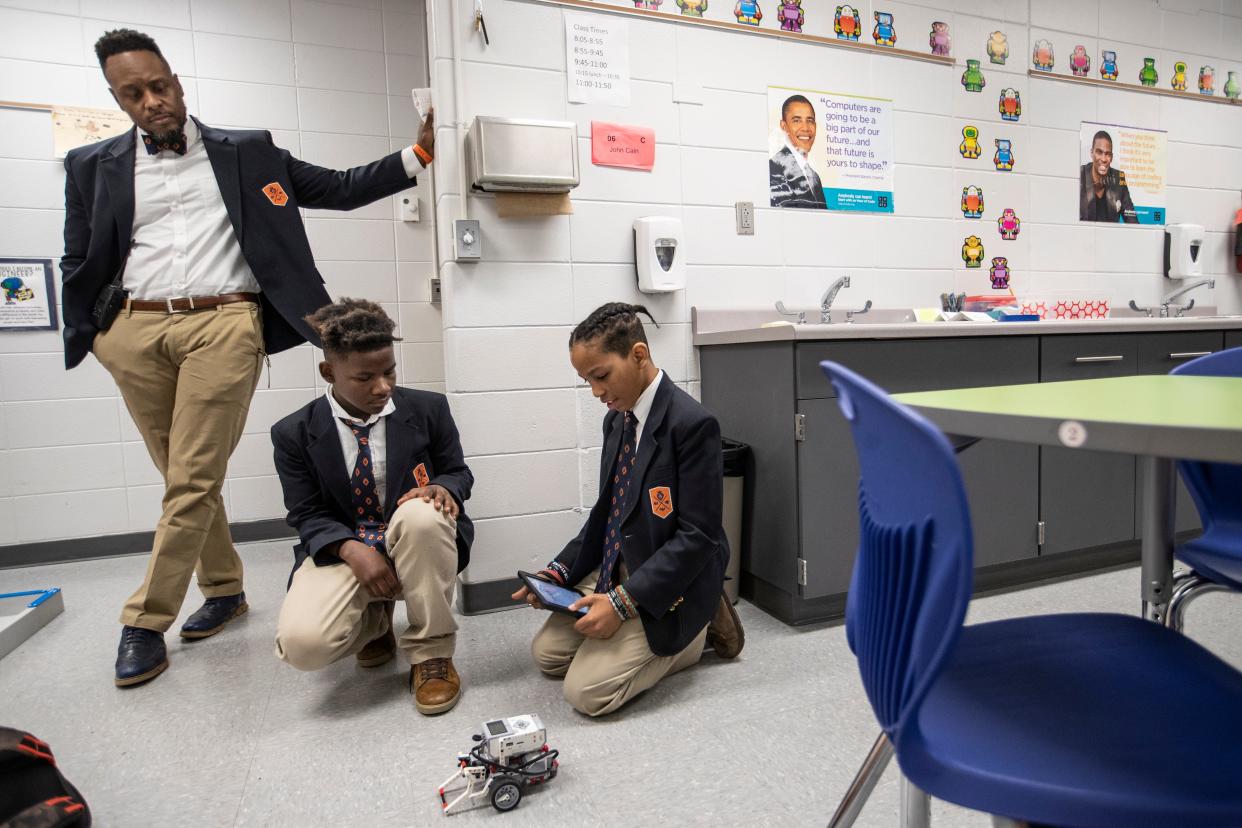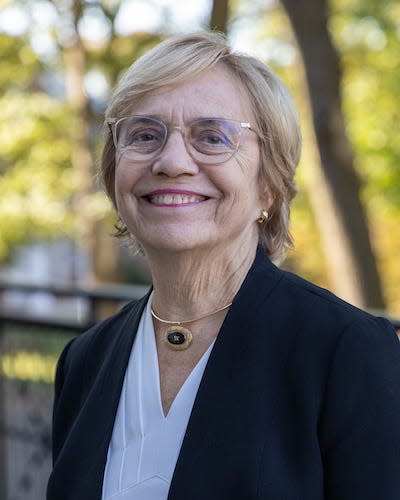Building a diverse workforce in Kentucky starts with advanced STEM classes for our students

Students who take advanced courses in school tend to have better attendance, higher high school graduation rates and often achieve greater economic success in their lifetimes. This is especially true in the case of advanced STEM courses, which not only prepare students better for college but also increase their interest in pursuing STEM majors. Such courses can make STEM fields more accessible and pave the way for more lucrative career opportunities over a lifetime. However, the process of placing students in advanced courses often depends on educator, counselor or parent recommendation, which can sometimes reflect a bias of what an 'advanced student' looks like.
STEM classes for students from low-income backgrounds
One in three Kentucky students were enrolled in an advanced course in 2022, which includes Advanced Placement, Dual Credit, International Baccalaureate and Cambridge AICE. However, disparities in access were evident, particularly for minority students and students from low-income backgrounds, with just 1 in 5 students from low-income backgrounds enrolled in an advanced course the same year. This disparity suggests there are students eager and ready for advanced courses who are not being identified through traditional means.
In addition to enrollment, there's a need for enhanced support for students from low-income backgrounds, students of color and those in rural areas to succeed in advanced courses. A recent report, Increasing Access to Advanced Coursework, by EdTrust, highlights a specific challenge in Kentucky: On average, 63% of students from each district come from economically disadvantaged backgrounds. While there has been a slight increase in AP proficiency across most demographic groups, districts with a higher concentration of low-income students faced greater challenges in enrolling these students in AP classes, ensuring their completion of these courses and helping them achieve passing scores.

STEM careers are growing in Kentucky
These trends are concerning for Kentucky given that STEM careers are expected to grow at twice the rate of other jobs in the next decade. Additionally, workers from low-income backgrounds, Black and Latino workers, workers with disabilities and women continue to be underrepresented in STEM careers. To build a diverse STEM workforce in Kentucky, it is imperative to start by actively providing students with opportunities to engage in rigorous and engaging STEM courses in K-12 classrooms.
A promising solution is the adoption of a policy that automatically enrolls any student who meets the state standard on the statewide exam in the next most rigorous level of advanced courses. This approach, moving away from 'opt-in' methods and subjective measures, can reduce historic barriers to dual credit and advanced classes, particularly for underrepresented groups.
Kentucky's steps to broaden access to advanced coursework
Evidence from North Carolina, which has implemented automatic enrollment policies, shows encouraging results. For instance, after implementing an automatic enrollment policy, 92% of students in grades 6 and above who scored at the highest level on their end-of-grade math test were placed in an advanced math course in the 2022-23 school year. Similar policies in Washington and Texas have shown positive outcomes as well.
Kentucky has taken steps to broaden access to advanced coursework in recent years, and it is indeed hopeful that Kentucky lawmakers will continue to strengthen student outcomes and bridge gaps in education by considering legislation like an automatic enrollment bill in the upcoming 2024 Legislative Session. Such a policy is evidence-based and is urgently needed to improve education outcomes for all students. It is imperative that Kentuckians receive the education and opportunities they need for an economically prosperous future that not only benefits their future individually but also the future for all of Kentucky.

Dr. Julia Link Roberts is a distinguished leader in the field of gifted education. As the Mahurin Professor of Gifted Studies at Western Kentucky University, she has dedicated her career to the advancement of gifted education. Dr. Roberts serves as the Executive Director of The Center for Gifted Studies and The Carol Martin Gatton Academy of Mathematics and Science, where she plays a pivotal role in nurturing young talents in STEM disciplines.
This article originally appeared on Louisville Courier Journal: High paying careers start with opportunities for K-12 STEM classes

